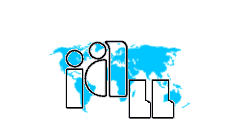Abstract
Although the United Nations’ 1948 Genocide Convention was a well-intentioned step toward ending genocide, acts of genocide have continued since its ratification. This paper suggests that because genocide is widely considered to be the most horrific of all crimes, the leaders of the international community owe it to their constituents to put some teeth in the Genocide Convention by increasing the speed with which acts of genocide are identified and eradicated. In order to speed up the international community’s response time in stopping existing situations of genocide, this paper asserts that certain specified international human rights non-governmental organizations (NGOs) should be given the designated role of identifying genocide and related acts. Such a designation would then initiate, within the U.N. system itself, appropriate action to stop these genocidal acts.
This paper examines the relevant statutory provisions and precedents for significant NGO involvement within the United Nations (UN) system. I also discuss several practical concerns associated with granting deference to NGOs and evaluate the degree to which such concerns may be refutable or compelling. This paper explores the moral and pragmatic values of creating a new system to identify cases of genocide, in the hope that the “never again” mentality that permeated the original drafting of the Genocide Convention can finally be given some force.
Recommended Citation
Kagan, Joshua M.
(2006)
"Speeding Up the International Community’s Response Time in Addressing Acts of Genocide: Deferring to the Judgment of Nongovernmental Organizations,"
International Journal of Legal Information: Vol. 34:
Iss.
1, Article 9.
Available at:
https://scholarship.law.cornell.edu/ijli/vol34/iss1/9
